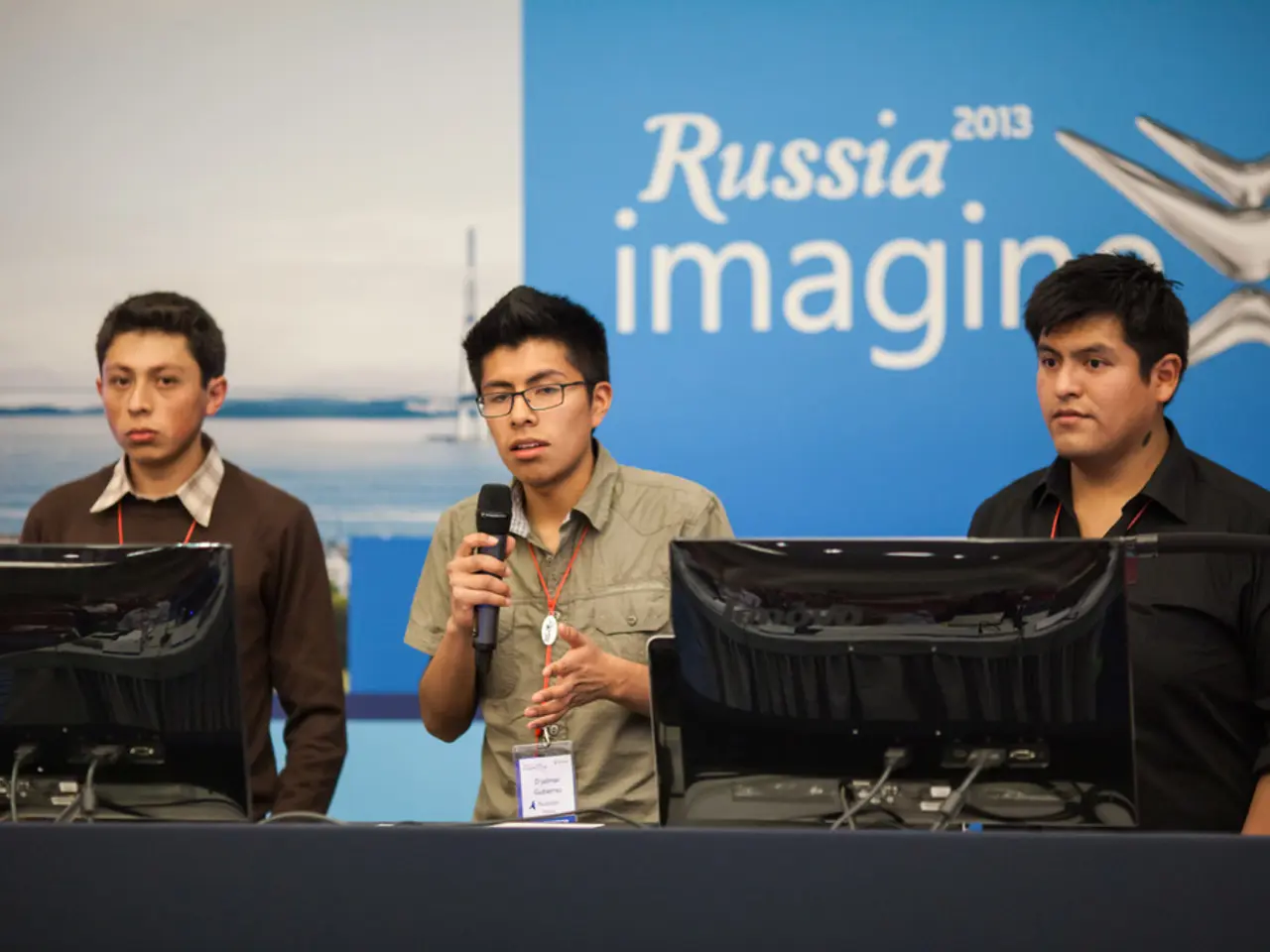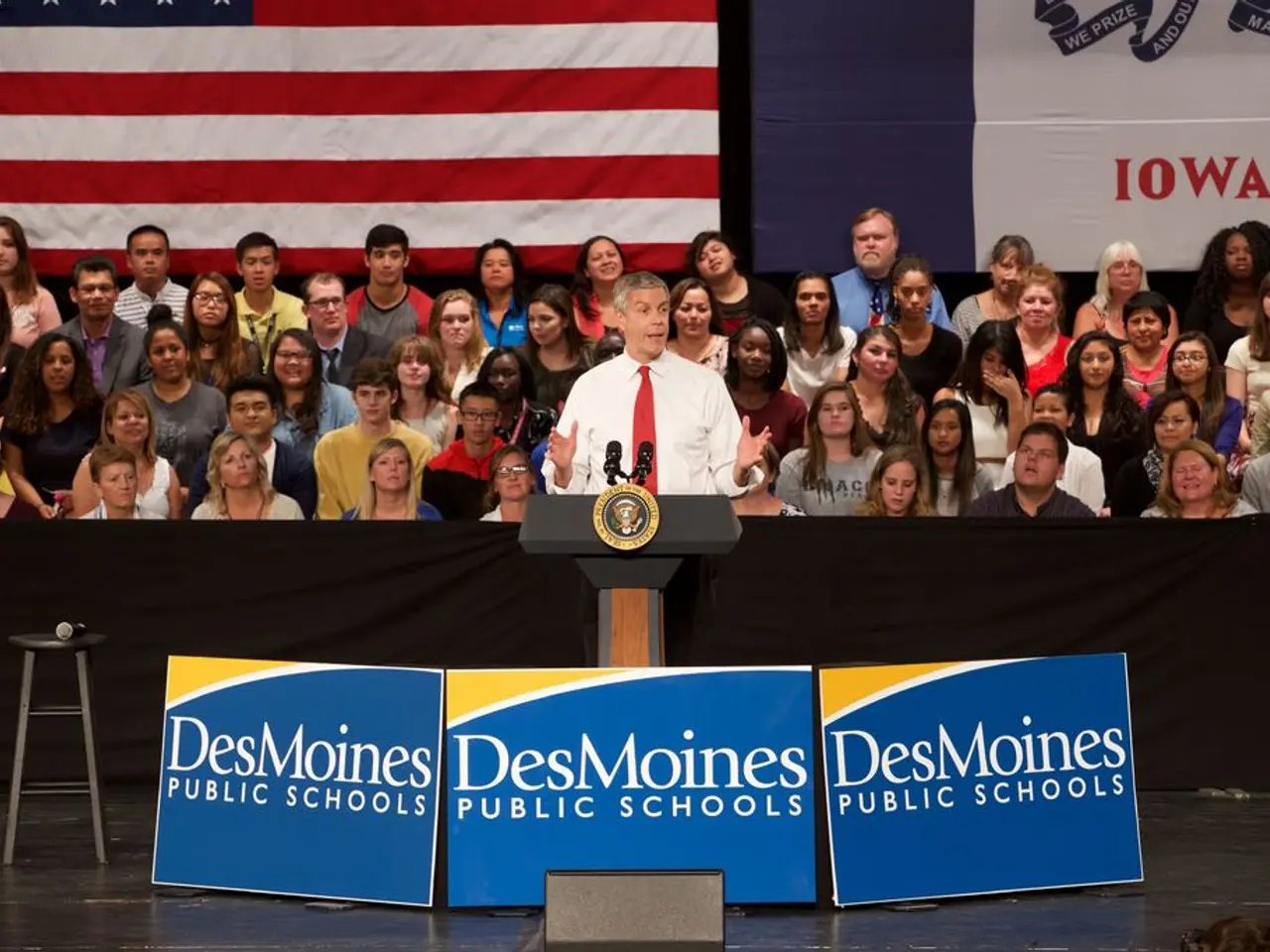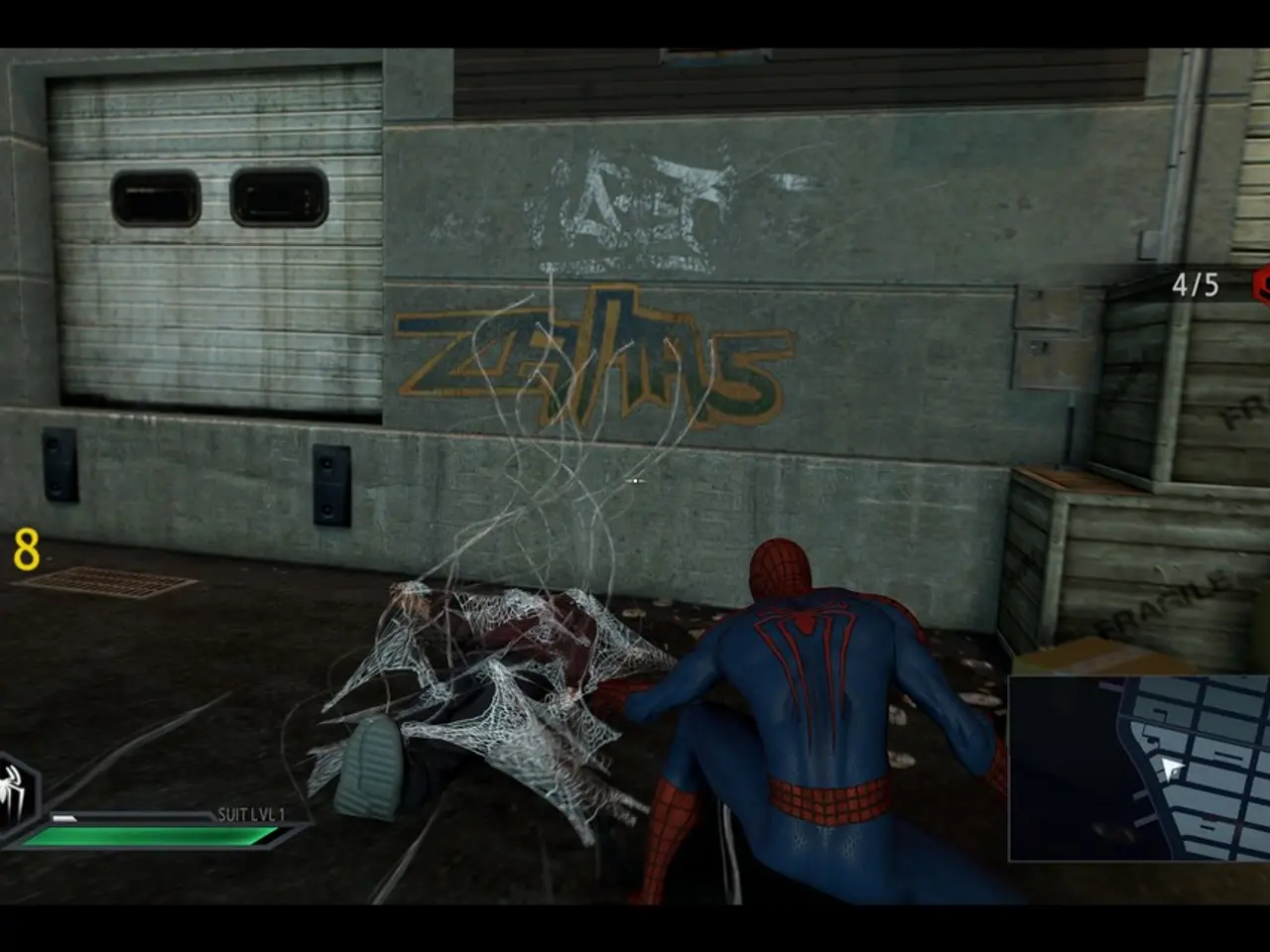Shifting Relationship between Putin and Trump: Negotiation Possibilities amid Conflicts
The ongoing diplomatic dialogue between former U.S. President Donald Trump and Russian President Vladimir Putin continues, despite the rising tensions surrounding the Russia-Ukraine conflict. A recent meeting between U.S. Special Envoy Steve Witkoff and Putin reportedly made "great progress," and a face-to-face meeting between Putin and Trump is expected imminently to further discuss conflict resolution [1].
The negotiations involve efforts to advance peace talks aimed at ending the Russia-Ukraine conflict. However, Russia's negotiation stance includes demands such as barring Ukraine from joining NATO, excluding foreign peacekeepers from post-conflict Ukraine, and revising some Ukrainian borders under dispute. Trump has imposed a deadline on Putin to show willingness to end the conflict, with the possibility of new economic sanctions on Russia after that deadline [1].
The White House has indicated that Trump is open to meeting both Putin and Ukrainian President Volodymyr Zelensky to seek an end to the war, but details on these potential meetings and any sanctions remain undisclosed for now [1].
Steve Witkoff, Trump's special envoy, frequently visits Russia to discuss possible solutions to the conflict in Ukraine. Witkoff's trips signify a continued effort to explore negotiation terms, bringing forth ideas that might entice cooperation from the Kremlin [1].
Analysts remain skeptical that these talks will lead to significant breakthroughs. There is a concern that Putin might use any summit with Trump to delay meaningful concessions while continuing military operations, aiming to gain support for imposing harsh terms on Ukraine [1].
The potential outcomes of these talks could range from a negotiated ceasefire and peace agreement reflecting Russian conditions, which might include security guarantees for Russia and territorial adjustments, to a continuation of hostilities if no agreement is reached. The talks also carry the risk of being used by Russia to stall or undermine Ukrainian sovereignty demands while buying time militarily [1].
Recent developments have shown a significant shift in the relationship between Putin and Trump regarding Ukraine. However, the article does not provide any information about the current state of the conflict in Ukraine or the opinions of the general public or political leaders in the U.S. or Russia regarding the relationship between Putin and Trump [1].
A Russian media outlet metaphorically described the relationship as two trains on a direct path toward one another, signaling an inevitable confrontation. The landscape is not entirely closed to negotiation, as both leaders have substantial motivations to seek an arrangement that could alter the current dynamics of conflict [1].
Trump has escalated measures aimed at pressuring Russia, threatening to impose stricter sanctions and tariffs on nations engaging in trade with Moscow. However, the article does not mention any new sanctions or actions taken against Russia by the U.S. or other countries [1].
Trump's rhetoric has become increasingly critical of Russian military actions, condemning attacks on civilian targets in Ukraine. Despite this, the article does not give any insight into the current opinions of the general public or political leaders in the U.S. or Russia regarding the relationship between Putin and Trump [1].
[1] References: The information in this article is derived from a single, unnamed source. For a more comprehensive understanding, it is recommended to consult multiple reliable sources.
a) Despite the skepticism among analysts, Steve Witkoff, as Trump's special envoy, continues to visit Russia to discuss potential solutions and explore negotiation terms regarding the war-and-conflicts in Ukraine.
b) The negotiations between Trump and Putin, focused on ending the Russia-Ukraine conflict, involve politics as Russia presents demands such as preventing Ukraine from joining NATO, excluding foreign peacekeepers, and revising Ukrainian borders.






